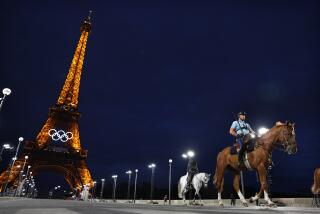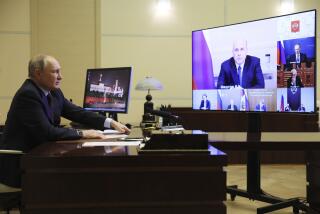Nuclear Fireworks in Paradise
- Share via
President Jacques Chirac promises that France will sign the international treaty to ban all underground nuclear tests, now in the process of being drafted. But before it gets around to that, France, in what it calls a matter of technological necessity and in what critics call a noisy show of independence, plans to explode eight nuclear devices on an atoll in French Polynesia.
Chirac defends the tests as vital to France’s national interests. New Zealand, Australia and most of the tiny Pacific island states close to where the explosions will take place view them instead as an outrage. The United States, using one of the mildest words in diplomacy’s lexicon, says it “regrets” Chirac’s decision. Chirac in any case has made clear he doesn’t care what anyone else thinks or says. The tests, scheduled to begin in September and continue until next May, are intended to remind the world that, as Foreign Minister Alain Juppe put it, France retains “a credible and sufficient deterrent force.”
However great the controversy, the singular fact remains that these may well be the last nuclear tests conducted by any of the five major nuclear powers. By early next year the 38-nation Disarmament Conference in Geneva expects to have a Comprehensive Test Ban Treaty ready for ratification. That pact would extend to underground sites the ban on atmospheric and underwater tests signed in 1963. The world has waited and hoped for such a treaty a very long time. It’s a pity France feels its onset must be signaled by one more round of nuclear fireworks.
More to Read
Sign up for Essential California
The most important California stories and recommendations in your inbox every morning.
You may occasionally receive promotional content from the Los Angeles Times.













